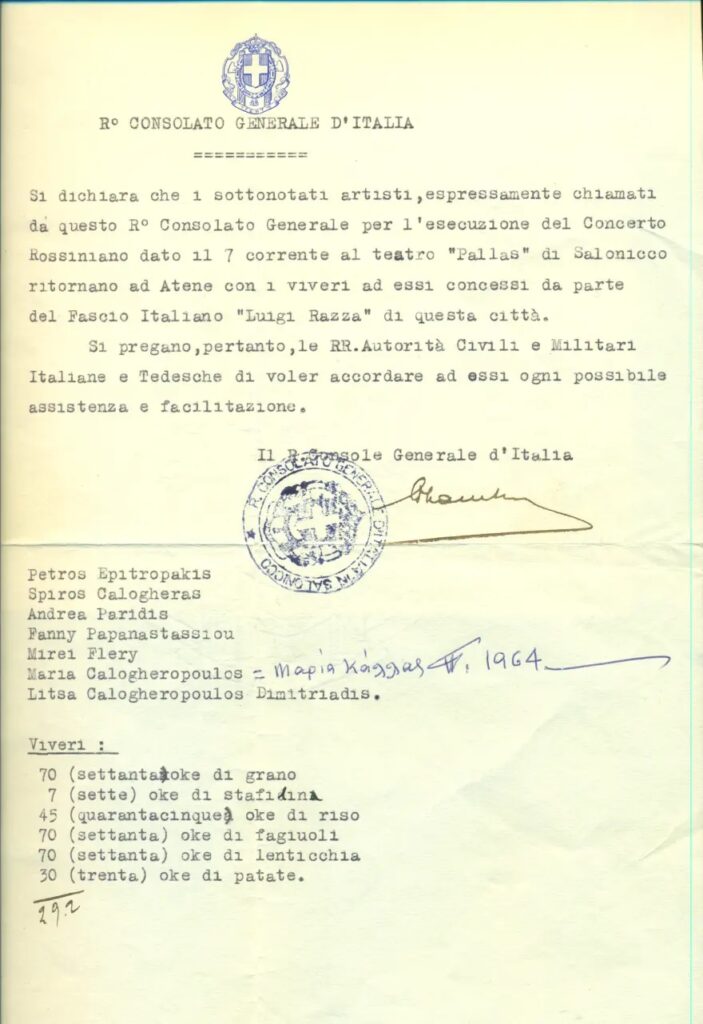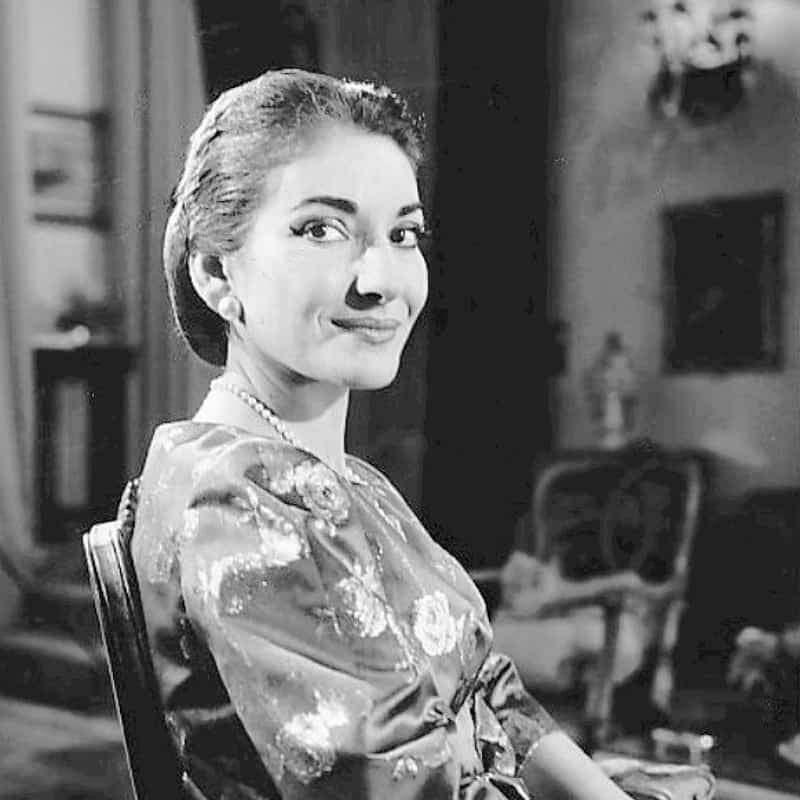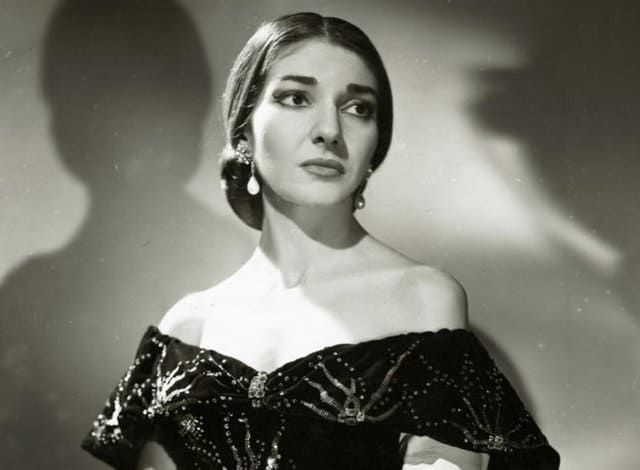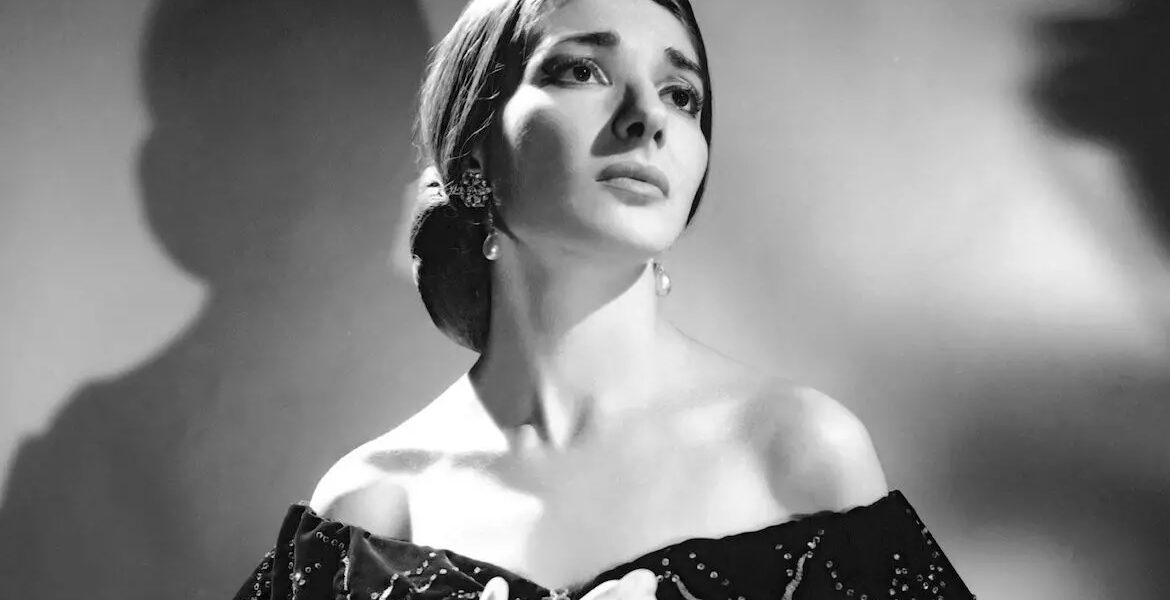Although Maria Callas is known all across the world today, few remember her poor and humble origins.
It is 1942. Greece groans from World War II, the world is hungry... A group of artists from Athens are invited to give a concert in Thessaloniki on the occasion of the 150th anniversary of Rossini's birth.
Among them was the then 19-year-old Maria Callas, who was accompanied by her mother, Elmina Evangelia, the great tenor Petros Epitropakis, the maestro Andreas Paridis and the famous tenor Mireille Fleury.

In order to travel to Greece's second city, they needed to have papers from the German Commandant, while for their return they needed a corresponding permit from the Italian consulate. Their fee for the concert is also mentioned in this last document.
Sacks of rice, lentils and potatoes!

The above document is just one of the thousands that comprise the rich archive of Stathis Arfanis, which he himself donated to the Athens Conservatoire in order to preserve it. It can also be studied by anyone who wishes.
This is real treasure archive which includes over 30,000 vinyl and gramophone records, cassettes, VHS and radio discs, recordings of great Greek and foreign performers and composers, rare original photographs but also manuscripts of big names in world music and concert programs from the 20th century.
Maria Callas, the great opera singer, would have been 100 this year. She died in 1977, aged 53, but her stage career ended in 1965 when she was just 42. Many women singers perform into their 60s, but Callas’s voice started declining early.
Callas — also known as “La Divina” or “The Divine One” — was best known for her unique vocal ability and realistic characterisations.
“Maria Callas’ contribution to the opera world was revolutionary, not just because of her vocal perfection, but because her performative precision and passion made her recitals historical,” said Lina Mendoni, the culture minister for Greece.
Callas’ centennial birth anniversary will be included on UNESCO’s celebratory list of anniversaries for 2023, which only concerns “personalities of genuinely universal stature, nominated posthumously only” and “must be indisputably known outside the borders of their own country, in order to reflect the ideals, values, cultural diversity and universality of the organization,” according to UNESCO.

Maria Callas had a challenging upbringing.
In addition to a difficult family life with a mother who was often at odds emotionally and verbally with her, Callas moved from New York City to Athens at the age of 13, experiencing poverty, personal humiliation, and, during the World War II years, even threats to her life, according to Paul Wink in his book Prima Donna: The Psychology of Maria Callas.
“Poverty and conflicted relations at home with her mother and sister failed to compensate Callas for hostility at work.
And yet, Callas demonstrated significant resilience amid difficult economic, social, and family conditions. “Although conceived in Greece, Maria Callas, was born in New York City, and returned to Greece in adolescence as a social and cultural outsider," according to Wink.

Her phenomenal rise to stardom was the result of an unwavering belief in her talent, independence in judgment, and a sense of destiny. These characteristics allowed her to realize an artistic vision unimpeded by opinions of others including the press or social media in today's parlance,” said Wink.
Callas emphasised the dramatic intent of her characters by rooting her interpretations within the scope of the music, recalling remarks from Tullio Serafin, a renowned Italian conductor: “When one wants to find a gesture, when you want to find how to act onstage, all you have to do is listen to the music.
The composer has already seen to that. If you take the trouble to really listen with your Soul and with your Ears—and I say ‘Soul’ and ‘Ears’ because the Mind must work, but not too much also—you will find every gesture there.”
“Maria Callas is one of the most iconic figures in the history of the performing arts... she managed to convince 20th century audiences that opera, drama, and music go hand-in-hand — that is exactly what Iphigénie en Tauride is about: the perfect combination of music and drama, one serving the other as equals,” said conductor George Petrou.
READ MORE: Monica Bellucci is back in Greece!


